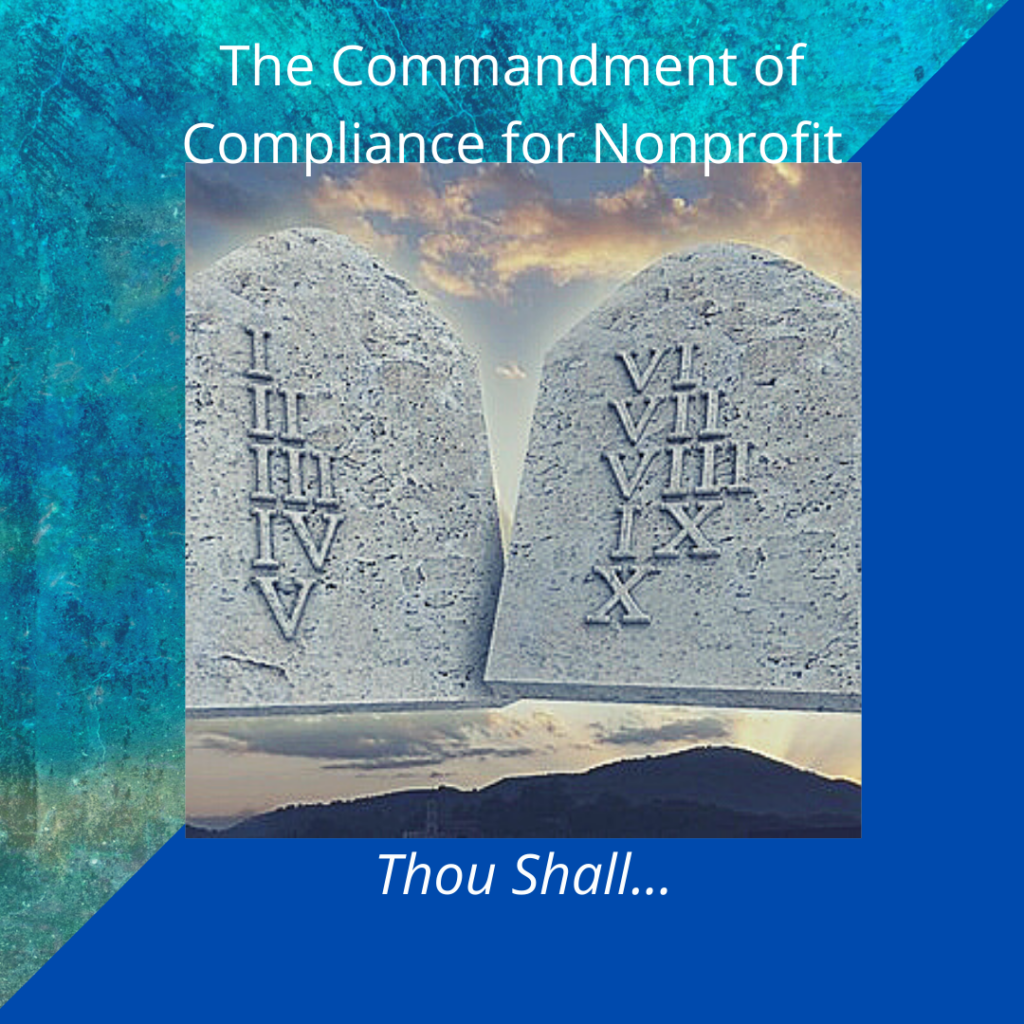Compliance Checklist: Thou Shall and Shall Not as a Nonprofit
Thou Shalt Not…
- Contribute to the political campaign(s). In addition to removing 501(c)(3) status, the IRS can require payment of special taxes when a 501(c)(3) Non-Profit contributes to any political campaign(s).
- The lobby in order to affect legislation in any “substantial” way. It is not immediately clear what affecting legislation in a “substantial” way means. However, the IRS helps to clarify by setting a limit on the amount a Non Profit can lobby under the “expenditure test” to 20 percent of the first $500,000 of expenditures, 15 percent of the next $500,000 of expenditures, and so on up to one million in contributions. If a Non Profit intends on affecting legislation, it first must make an election under Form 5768.
- Make substantial profits from, or contribute substantial time on, “unrelated activities”. For example, while a children’s classics reading group, set up for the purpose of advancing literary and educational pursuits, may host a grunge rock concert, it may not make “substantial” profits on doing so. Furthermore, it may not commit substantial time to do so. What makes a percentage of income or time substantial is not immediately clear; however, not more than 10 percent of income from, or time spent on, unrelated activities relative to income from, or time on, related activities is a good rule of thumb.
Thou Shall
- Make a conflict of interest policy. All officers and directors should sign a conflict of interest policy. Then, if an officer or director acts inconsistent with the policy, there will be a paper trail documenting their consent to the conflict of interest policy.
- Not allow a paid officer to also be a director. A Non Profit should prevent any possible conflicts of interest, and, there is little that would more clearly mean a conflict of interest than a director voting on his or her compensation. If a paid officer MUST also be a director, that officer should recuse him or herself from any vote involving him or her.
Not pay a director, who is also an officer or member. For the same reasons as above, paying a director who has another interest in the company is likely to lead to a conflict of interest. - Pay taxes on unrelated activities over $1,000.A Non Profit must pay taxes on income from unrelated activities exceeding $1,000. However, unrelated activities are not required to pay taxes over $1,000 when:
All work for the activity is done by volunteers.
The activity is primarily for the benefit of officers, members/employees, or clients/students/patients (e.g. a coffee shop for students and employees of a school).
The activity is the sale of the merchandise substantially received by donation (e.g. second-hand store).
the activity is the exchange of mailing list(s) of donors or members.
the activity is the distribution of a souvenir for donation (e.g. a bumper sticker or hat).
Thou May…
- Build a grassroots campaign(s). It is typically encouraged for a Non Profit to build a strong grassroots campaign.
- Promote the company. As long as the information is truthful, it is strongly recommended that a Non Profit advertise. Places in which advertisement is free and highly encouraged include on guidestar.org and facebook.com (with a fan page).
Warm Regards,
C. Nicole Henderson CNH & Associates, LLC.
Cell: 404-275-2367 Office: 678-341-0917
Twitter: cnhenderson12
FB: C Nicole Henderson & C N Henderson
IG: cnicolehenderson
The Commandment of Compliance for Nonprofit Part2

